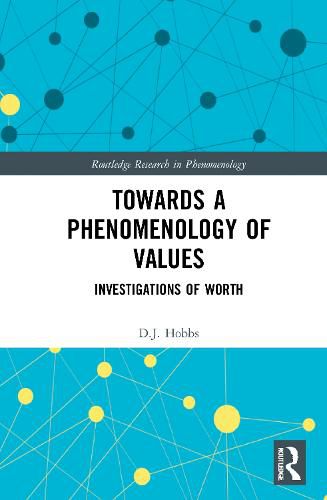Readings Newsletter
Become a Readings Member to make your shopping experience even easier.
Sign in or sign up for free!
You’re not far away from qualifying for FREE standard shipping within Australia
You’ve qualified for FREE standard shipping within Australia
The cart is loading…






This book provides a framework for phenomenological axiology. It offers a novel account of the existence and nature of values as they appear in conscious experience.
By building on previous approaches, including those of Edmund Husserl, Max Scheler, and Nicolai Hartmann, the author develops a unique account of what values really are. After explicating and defending this account, he applies it to several of the most difficult questions in axiology: for example, how our experiences of value can differ from those of others without reducing values to subjective judgments or how the values we experience are connected to the volitional acts that they inspire. This provides satisfactory answers to certain fundamental questions concerning the basic structure of value-experiences. Accordingly, this book represents a novel step forward in phenomenological axiology.
Towards a Phenomenology of Values will be of interest to scholars and advanced students working in phenomenology and value theory.
$9.00 standard shipping within Australia
FREE standard shipping within Australia for orders over $100.00
Express & International shipping calculated at checkout
This book provides a framework for phenomenological axiology. It offers a novel account of the existence and nature of values as they appear in conscious experience.
By building on previous approaches, including those of Edmund Husserl, Max Scheler, and Nicolai Hartmann, the author develops a unique account of what values really are. After explicating and defending this account, he applies it to several of the most difficult questions in axiology: for example, how our experiences of value can differ from those of others without reducing values to subjective judgments or how the values we experience are connected to the volitional acts that they inspire. This provides satisfactory answers to certain fundamental questions concerning the basic structure of value-experiences. Accordingly, this book represents a novel step forward in phenomenological axiology.
Towards a Phenomenology of Values will be of interest to scholars and advanced students working in phenomenology and value theory.